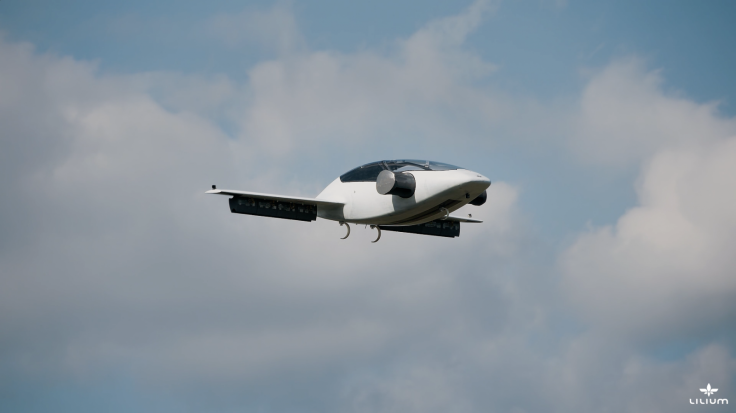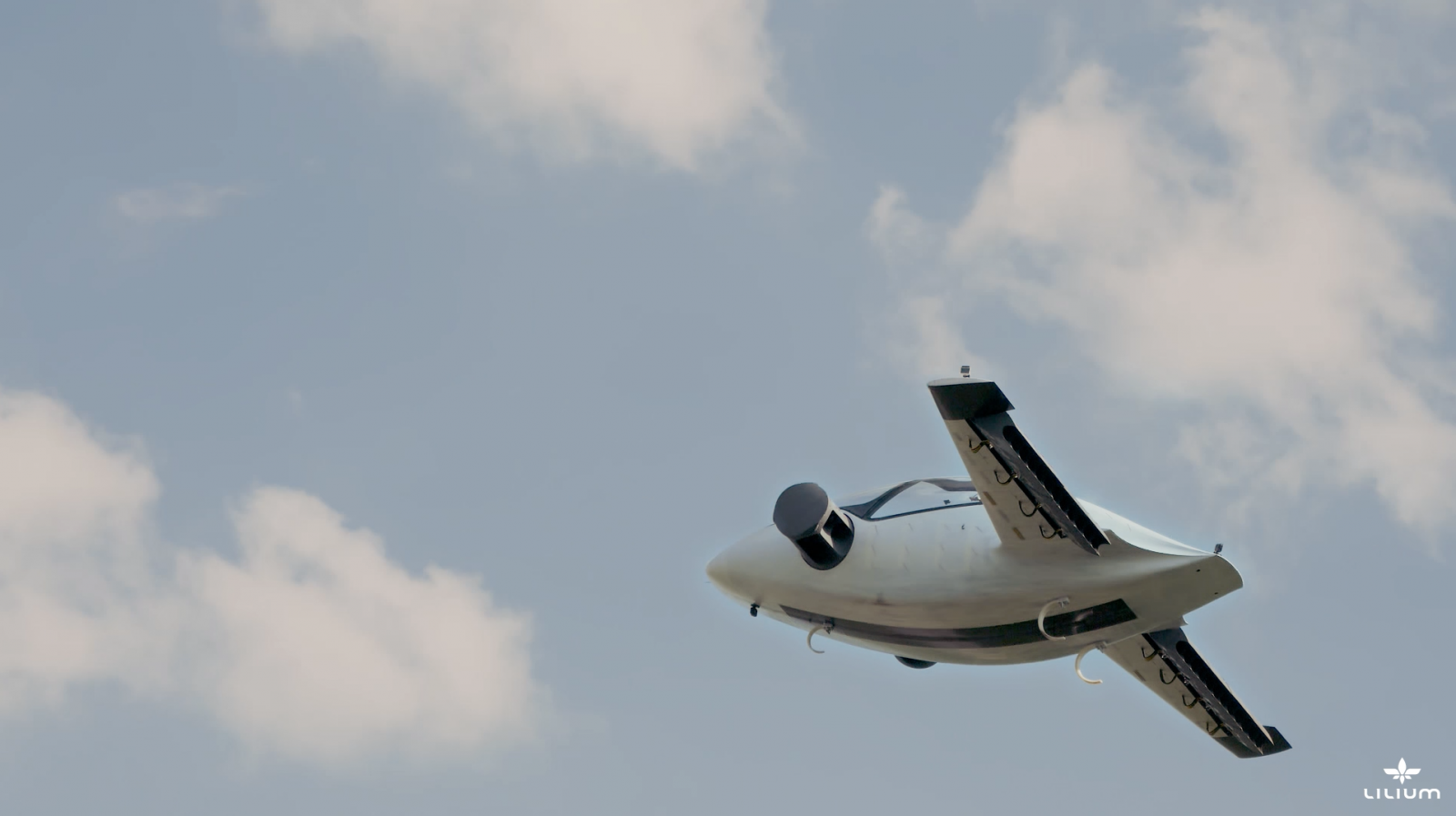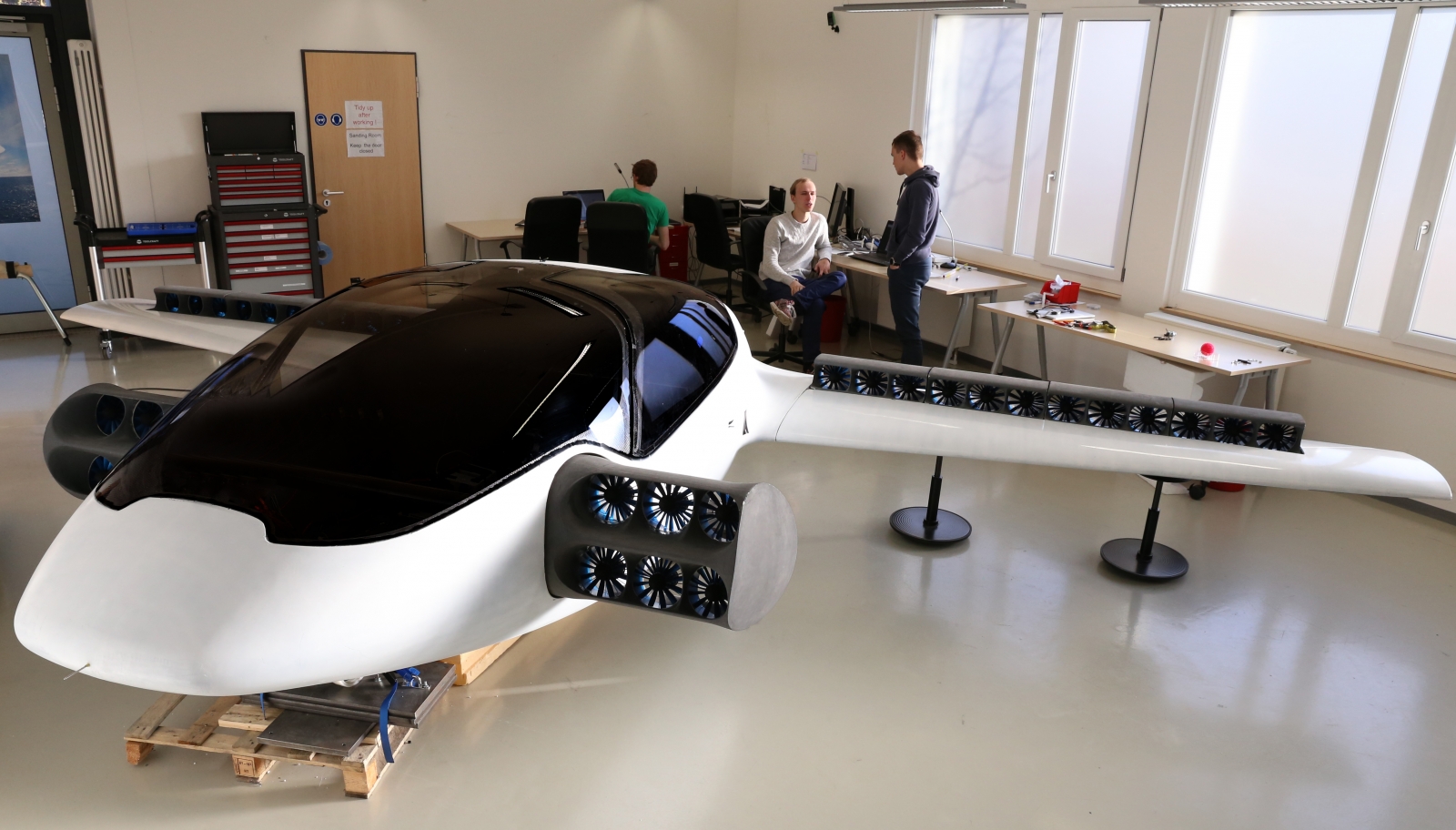Lilium: World's first electric VTOL jet completes successful test flights
German startup Lilium Aviation now developing five-seater VTOL jet as an on-demand air taxi.

The founders of a German startup that is developing the world's first electric vertical take-off and landing (VTOL) personal flight jet aircraft for consumers have announced their prototype has successfully completed its first unmanned test flights.
The Lilium Jet is an all-electric VTOL personal aircraft that features rechargeable battery-powered ducted fan engines, retractable landing gear, fly-by-wire joystick controls, wing doors, panoramic windows, an interactive touchscreen and a large amount of storage.
The Lilium Jet can travel at up to 300km/hr and has a cruising range of 300km. The firm, founded by four engineers and doctoral students from the Technical University of Munich, claims that their two-seater (7m wingspan) prototype has passed a programme of test flights, but is unwilling to disclose how high the jet flew, for how long or over what distance.
However, Lilium Aviation says the test flights were conducted within line of sight and followed restrictions required of drones in Germany and the EU, so the testing on the air field wasn't very high.




"The test flights show that the technical design concept works exactly as planned and that it's safe and reliable," Lilium's co-founder Sebastian Born told IBTimes UK. "We're now focusing on a five-seater concept. The first manned flight is meant for 2019."
The startup views its aircraft as a worthy actor in the burgeoning air taxi industry, and while initially when the Lilium Jet is launched it will be piloted, eventually the firm wants the aircraft to autonomously fly passengers to their destinations.
"Yes, it might be that people would be afraid, but I think that time will tell. If they see that
the system is working, they will gain trust in the technology," said Born.
"If you think about autonomous cars, they will be better because will be no human errors. But, if a car is driving through the city and there are kids playing with a football, then the car has to react. In the air, there are even less obstacles, it's a less complex environment, so it's safer."
Ensuring the safety of a VTOL aircraft
To ensure that the aircraft is safe, the startup has built "ultra redundancy" into it. There are 36 motors and rotors, and even if some components stop working, the aircraft can still continue flying without affecting the rest of the system.
In case something else goes wrong, a parachute system will open and ensure the aircraft makes a safe landing. On top of this, Lilium Jet's software also prevents the pilot from making any manoeuvres that might be unsafe.
"If you think of transportation in general, you have cars and trains, but you have the problem with helicopters that they produce noise and emissions. You cannot say you want to commute over London as an air taxi service. It's too loud, people wont like that and it's very expensive," stressed Born.
"Flying the VTOL jet, you only have an aircraft licence. The aircraft is zero emissions and the pilot is far less expensive because of the pilot licence, [plus] the system is much more efficient than a helicopter. In cruise flight, we use less energy [because] electric efficient systems are much less expensive."
© Copyright IBTimes 2025. All rights reserved.






















